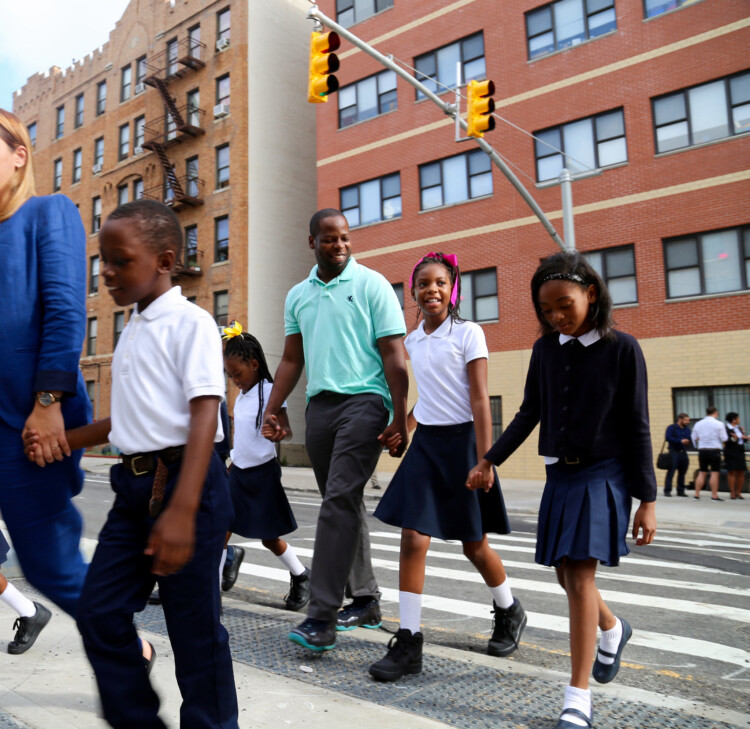For over three decades, research has shown that young people transitioning to adulthood from foster care in the United States have fared very poorly compared to their peers who have not been in care. This is the case across measures of well-being including educational attainment, employment and earnings, material hardship, and criminal justice system involvement. Such inequality is, unfortunately, not surprising: Youth in foster care come overwhelmingly from low-income families, are disproportionately members of marginalized racial and ethnic groups, and, in too many cases, are overlooked by a child welfare system that fails to appropriately respond to their needs after they enter care.
Policymakers have enacted a series of federal laws to ameliorate poor outcomes for the children of the state, however. Most recently, the federal Fostering Connections to Success and Increasing Adoptions Act of 2008 allowed states, at their option, to extend the maximum age of care from 18 to 21 with federal funding. Since 2011, the first year that the extension could be put into effect, about half of all states have taken up that option. California, for example, extended foster care from age 18 to 21 in 2012, and has since provided funding for counties to support an array of supported living arrangements and services intended to meet the needs of young adults in care, with a focus on assisting them in continuing their education and succeeding in the labor market. Upon putting the Fostering Connections Act in place, California became the state with the largest population of young adults in foster care.
California’s Implementation and Our Ongoing Evaluation
With support from the William T. Grant Foundation, I have been leading an evaluation of California’s implementation of extended foster care. The California Youth Transitions to Adulthood Study (CalYOUTH) is a collaboration between my research team and the California Child Welfare Co-Investment Partnership, which is made up of the California Department of Social Services, County Welfare Directors Association of California, Judicial Council of California, and a group of foundations committed to improving California’s child welfare system. Our study seeks to help our partners in California, as well as the broader child welfare policy and practice communities, answer the following questions:
- Does extending foster care past age 18 influence the outcomes of young people during the transition to adulthood?
- What factors influence the types of support youth receive during the transition to adulthood in the context of extended foster care?
- How do living arrangements and other services that result from extended foster care influence the relationship between extending care and youth outcomes?
To answer these questions, CalYOUTH has been analyzing data collected from periodic interviews with a group of youth who are aging out of foster care, online surveys of child welfare workers who supervise the provision of extended foster care to young adults, and administrative records on outcomes—including employment and earnings, postsecondary education, and receipt of public benefits—for the entire population of California youth transitioning to adulthood from foster care.
Promising Early Findings
Using a variety of evaluation methods, we have examined relationships between extended foster care and youth outcomes to age 21. Our findings indicate the benefit of extended care in several areas. First, we find that each additional year youth spent in care past age 18 is associated with an 8.2 percent increase in the likelihood of completing a high school credential, a 10.6 percent increase in the likelihood of enrolling in college, an increase of about one month per year in the time they are employed, and about $400 more in assets. Young people who remained in extended care also experienced fewer economic hardships and each additional year in care decreased the estimated odds of youth experiencing homelessness by 32 percent. Young women who spent more time in care were less likely to become pregnant or have a child between the ages of 17 and 21. And each additional year in care was associated with a two-fifths reduction in the estimated odds that youth were arrested.
Despite this promising news, our study also suggests that extending foster care is not having much of an impact on other outcomes, including physical and mental health, nor does it appear to be helping youth who pursue post-secondary education persist in completing a degree. Importantly, however, we find no evidence that allowing youth to remain in care as young adults harms them in any way.
Unpacking the Effects of Extended Foster Care
Most recently our work has turned toward understanding how extended care might be influencing these outcomes for youth in care. Several of the outcomes where benefits of remaining in care were observed (e.g., reductions in economic hardship and homelessness, and increased financial assets) ought to be directly affected by whether youth have the means to pay for housing, food, and other necessities. Our study provides strong evidence that remaining in care significantly increases the likelihood that young people’s basic needs will be met. Remaining in care also appears to be connecting youth to professionals who provide them with forms of social support, including advice and guidance, which can help them navigate uncharted territory such as applying to college, signing a lease, or deciding on a career path.
We are also finding that the operation of the locally-operated public systems charged with helping foster youth succeed influences their outcomes, including whether they remain in care past 18. As is the case in many states, California has delegated authority for provision of social services, including child welfare services, to county governments. Our findings indicate that foster youth living in counties with high levels of collaboration between the child welfare system and other service systems spent significantly more time in extended care than did youth in counties with lower levels of collaboration. Similarly, youth living in counties where dependency court personnel were more supportive of extended foster care spent more time in care.
Providing foster care to young adults is a new endeavor for public child welfare agencies and their partners in the public and nonprofit service sectors. By shedding light on California’s early experiences, we hope that CalYOUTH can help inform the efforts of other states that have chosen to extend foster care to young people transitioning to adulthood from state care.





